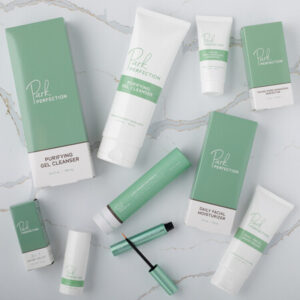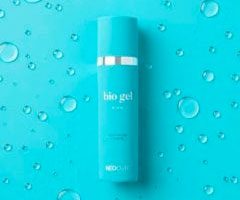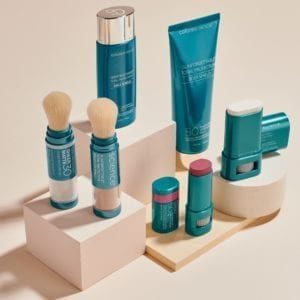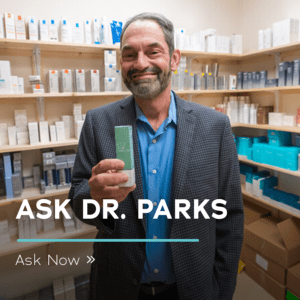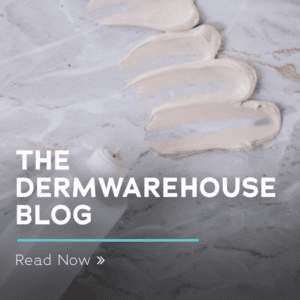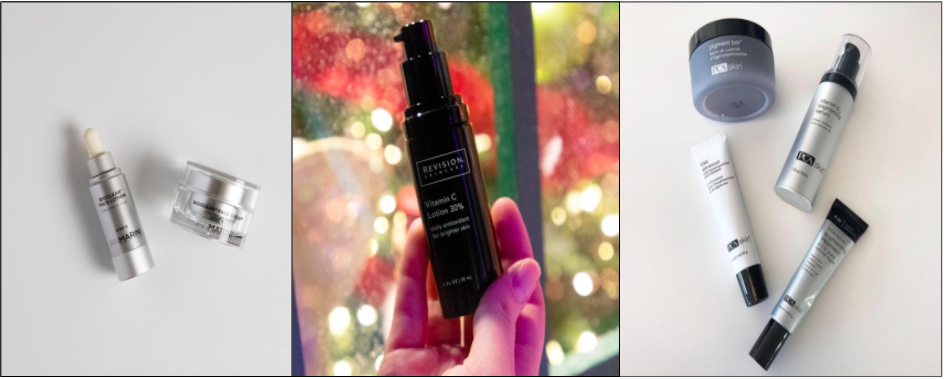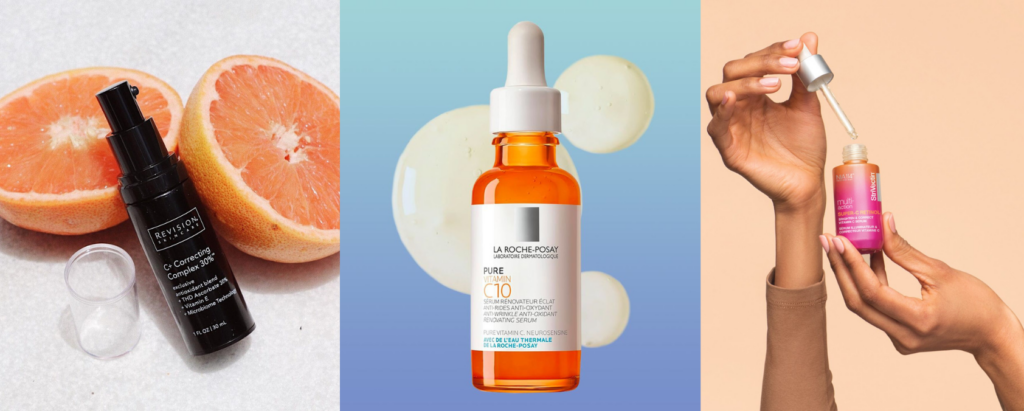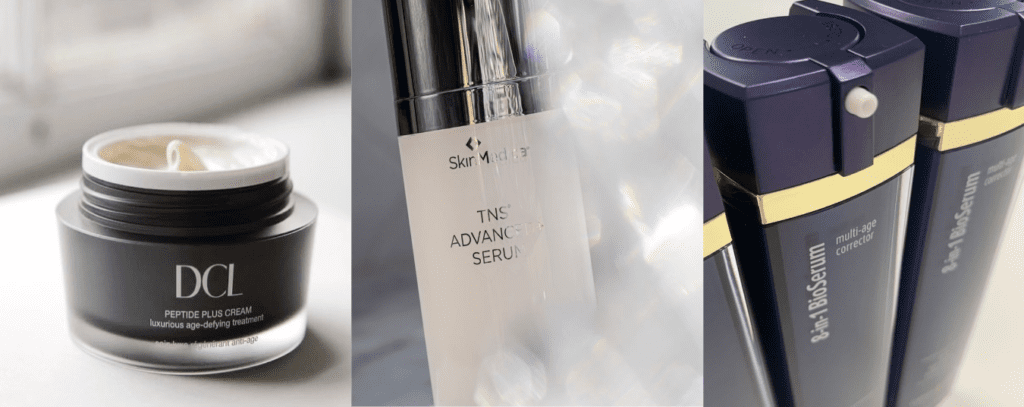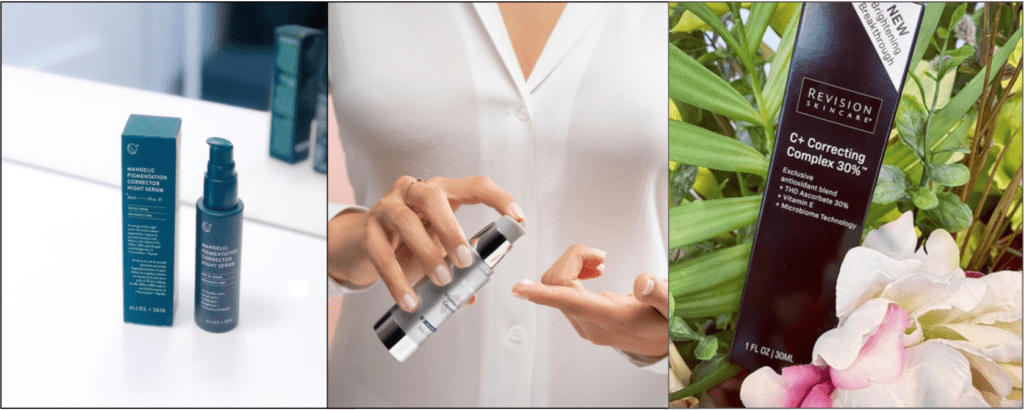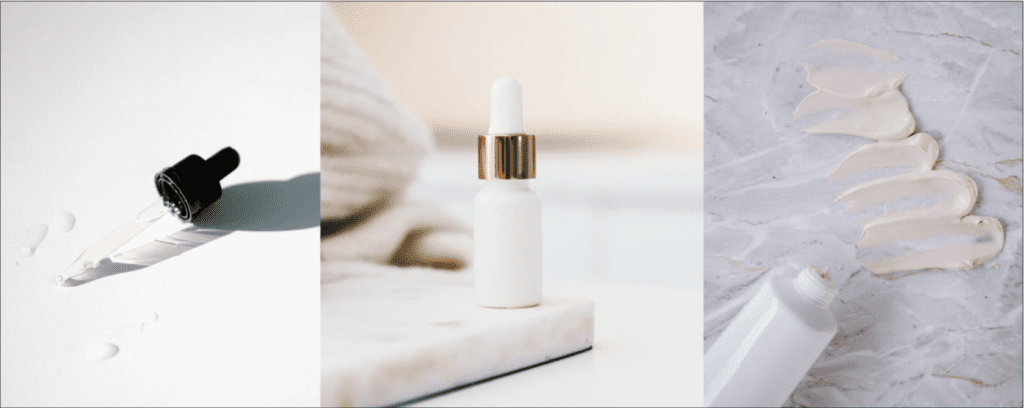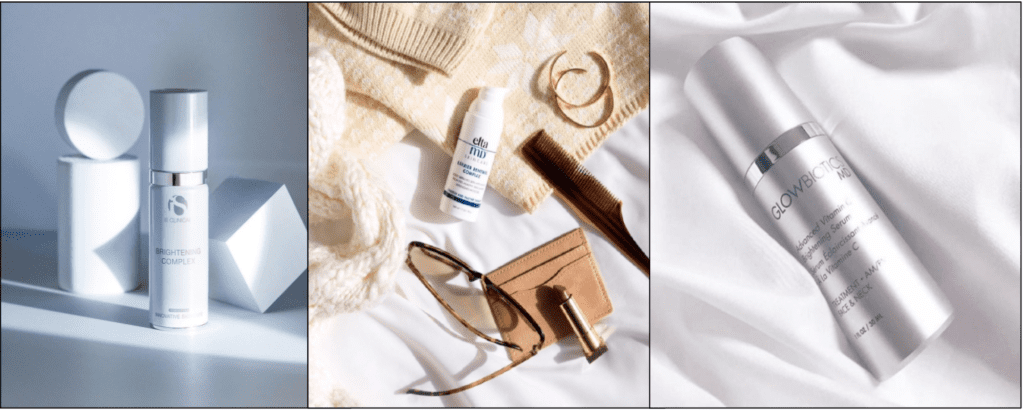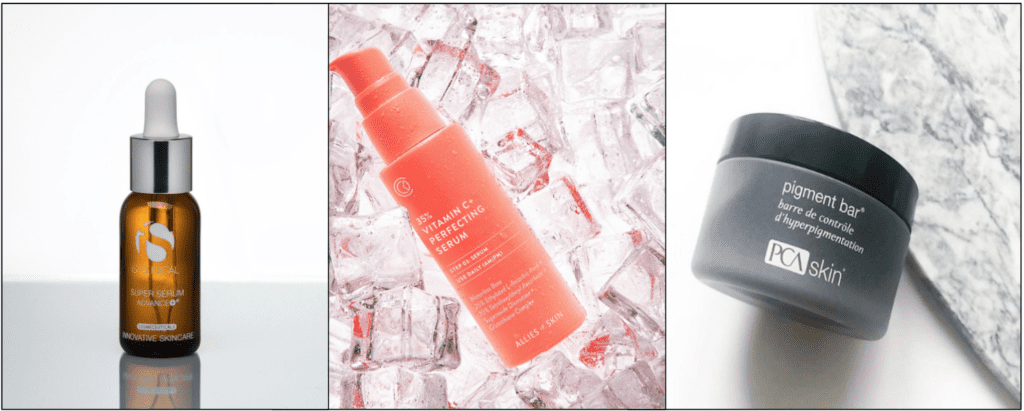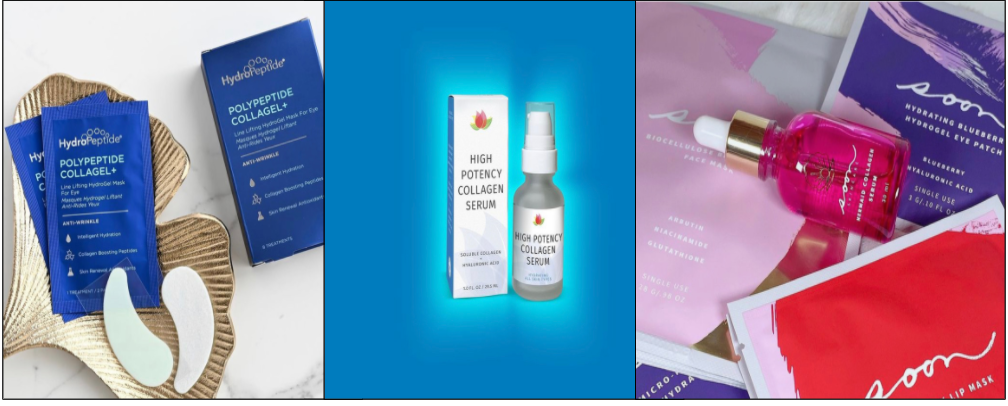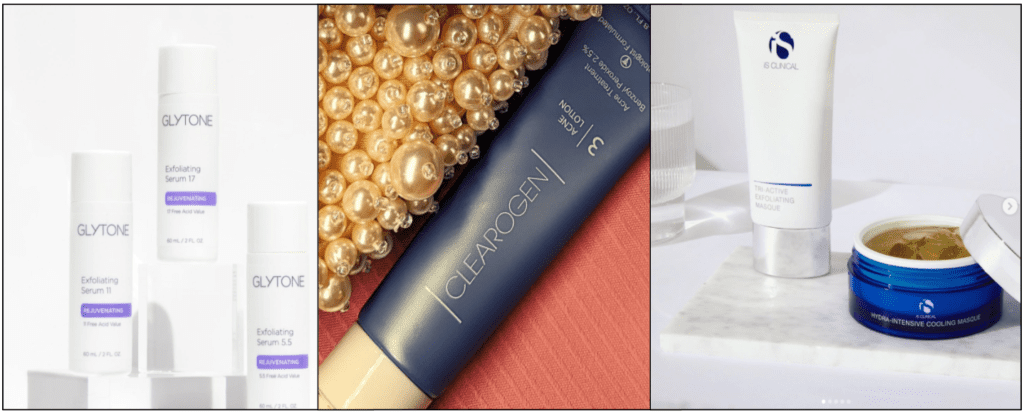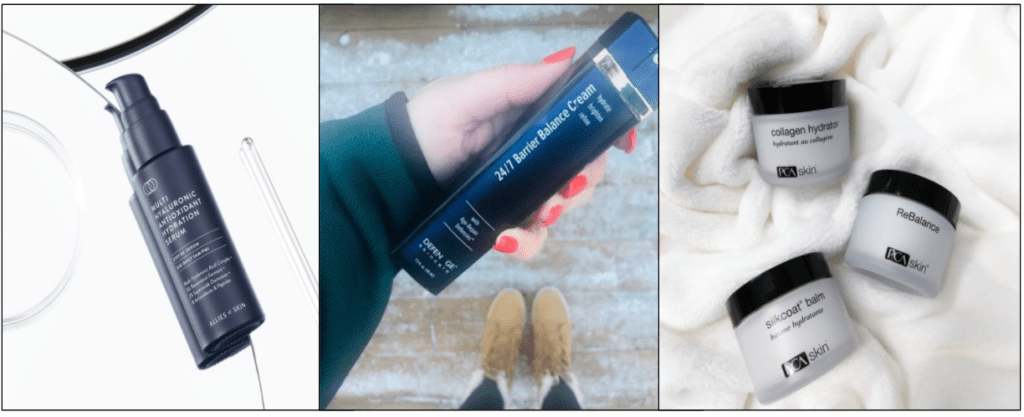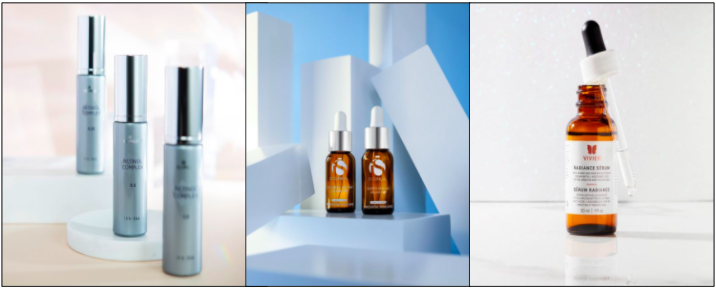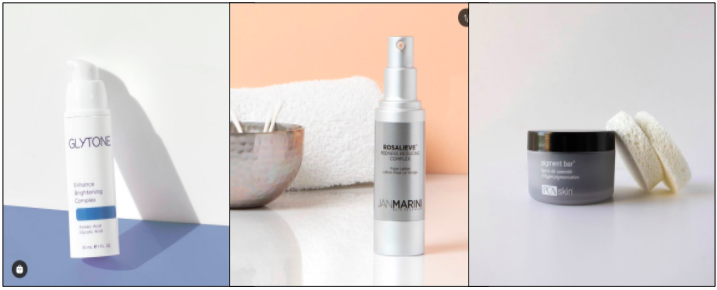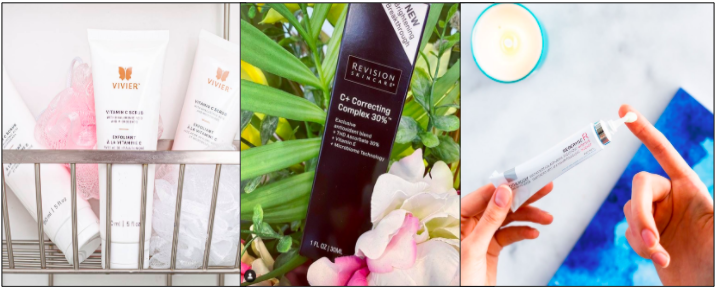Remember those summers you thought you could tan your face easier if you didn’t put sunscreen on? You may have had a temporary sun kissed glow, but now, years later, you find yourself with dark or discolored patches on your face, otherwise known as dark spots. Dark spots can be caused by acne scars, hormonal changes, and most commonly, sun damage.
What causes dark spots?
Every skin type and tone contains the pigment melanin. It is created by cells called melanocytes, and acts as a protection for the skin. When your skin produces excess melanin, patches and spots that are darker than your natural skin tone form in deposits under the skin.
Also called post-inflammatory hyperpigmentation, one way that dark spots can develop is from inflammation caused by skin conditions like acne. After your skin suffers a wound, such as a picked-at pimple, it becomes inflamed and produces excess melanin as it heals.
You can also develop dark spots in response to changes in your hormones, called melasma. When you have an excess of hormones, the production of melanin is further stimulated. Pregnancy leads to a change in your hormones, and pregnant women will often see dark patches appear on their noise, cheeks, jawline or forehead, and this discoloration often goes away when hormone levels balance.
The most common cause of dark spots is sun damage due to overexposure to the sun’s harmful rays. Melanocytes are stimulated by the sun’s UV rays and release more melanin than is needed to act as a natural sunscreen. The sun also causes the dark spots known as age or liver marks. These spots are also caused by sun damage, but over years of continued exposure.
How can I get rid of dark spots?
One of the most common solutions for fading dark spots includes using skin-brightening ingredients, such as:
Hydroquinone: Hydroquinone is a skin-bleaching agent used to lighten areas of the skin by decreasing the formation of melanin in the skin. The Glytone Dark Spot Corrector utilizes hydroquinone along with glycolic and kojic acid to reduce dark spots on the skin, and PCA Skin’s Pigment Gel utilizes 2% hydroquinone to lighten existing and prevent future dark spots.
Vitamin C: Vitamin C interferes with pigment production, which helps to lighten dark spots and hyperpigmentation. It’s also an antioxidant, meaning that it protects the skin from free radicals caused by the sun’s UV rays. Obagi’s Professional C-Serum comes in multiple strengths of Vitamin C and works to brighten your skin, and Revision Skincare’s Vitamin C Lotion has 30% Vitamin C formulated with THD Ascorbate, the most stable and superior form of Vitamin C to help fade dark spots and even out your skin tone.
Azelaic Acid: Azelaic acid is a chemical exfoliant that helps to refine and renew the skin’s surface and increase cell turnover. It works to combat dark spots and hyperpigmentation by inhibiting melanocytes and therefore the creation of excess pigment. Don’t know where to start with azelaic acid? Jan Marini’s Bioclear Lotion uses glycolic acid, salicylic acid and azelaic acid to help you combat dark spots on a daily basis. In addition, PCA Skin’s Pigment Bar is formulated with azelaic acid, kojic acid and niacinamide to help even out skin tone and combat dark spots.
The most important thing to remember to help prevent future dark spots and discoloration is to always wear sunscreen. It’s also important to avoid picking at any blemishes that could lead to a deeper wound and further discoloration. For additional questions about dark spots, or the ingredients used to lighten them, reach out to Dr. Parks.

